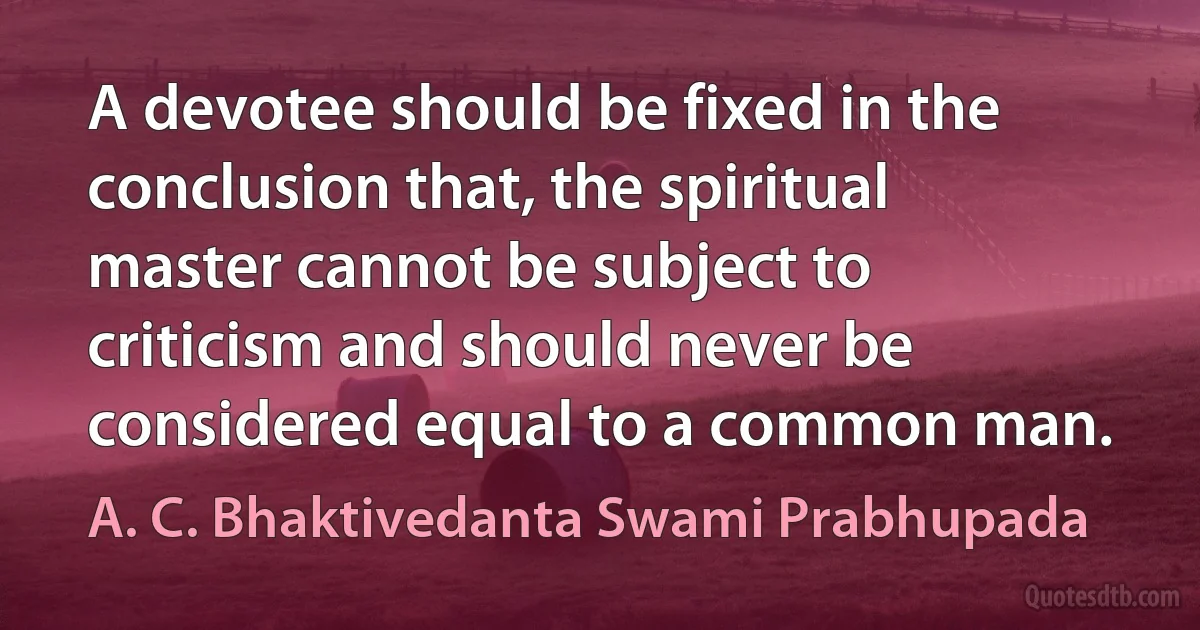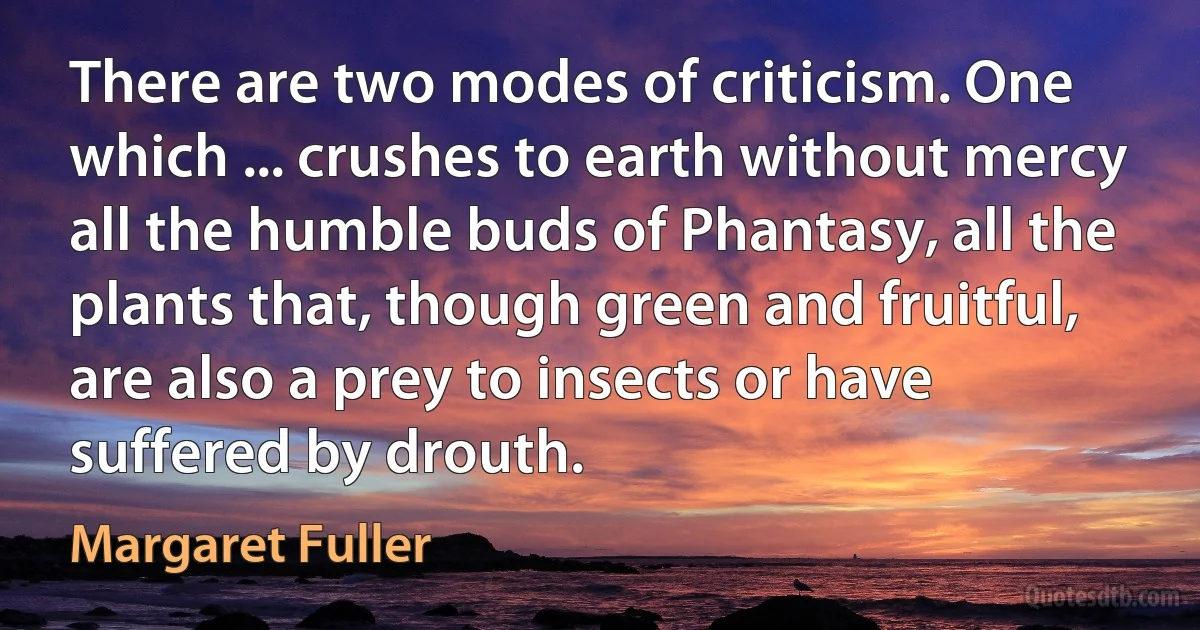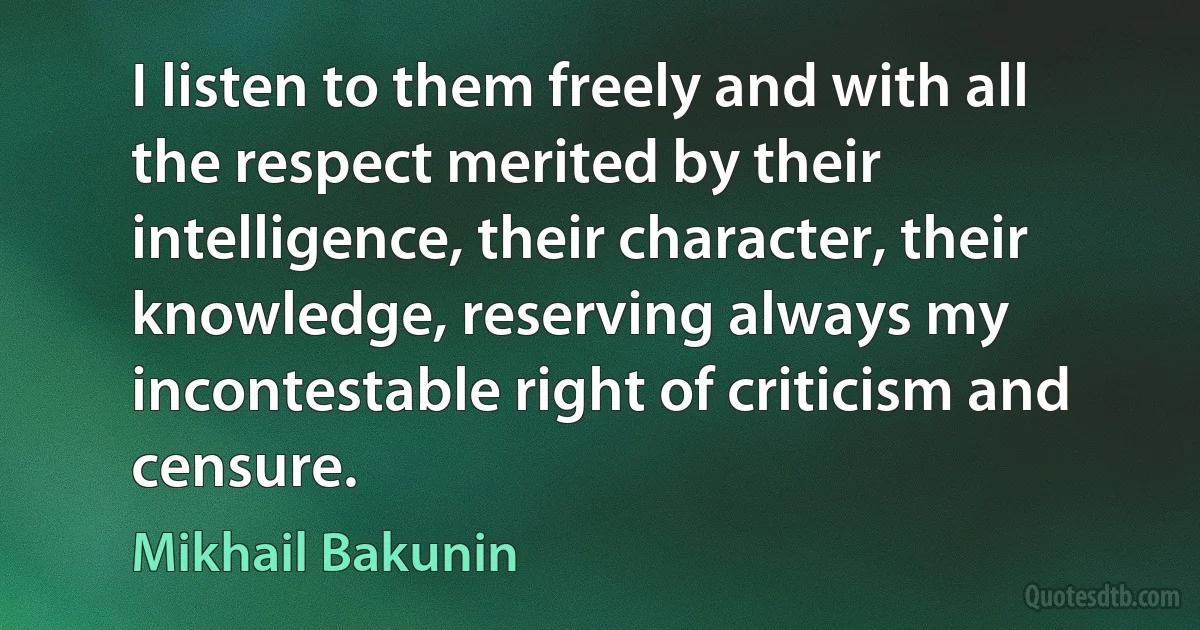Criticism Quotes - page 32
It takes courage to lay your insides out for people to examine and sneer over. But that's the only way to give what is your unique gift to the world. I have often noted that it takes the thinnest skin in the world to be a writer, it takes the thickest to seek out publication. But both are needed - the extreme sensitivity and the hippo hide against criticism. Send your inner critic off on vacation and just write the way little children play. You can't be judge and creator at the same time.

Katherine Paterson
Cultural freedom is in special danger today because so much of our life has been politicized. ... With governments which are popular and free, but which allow political sanction to pressures building up against certain types of cultural expression, ... the pressure ... moves to condemn on grounds which are social and political, and its desire is for uniformity, standardization, consolidation, and all the other features of Gleichschaltung, as it moves to protect from criticism and even from realistic depiction something over which people have become politically excited. In our American experience, these pressures have been largely social.

Richard Weaver
There are two modes of criticism. One which crushes to earth without mercy all the humble buds of Phantasy, all the plants that, though green and fruitful, are also a prey to insects or have suffered by drought. It weeds well the garden, and cannot believe the weed in its native soil may be a pretty, graceful plant. There is another mode which enters into the natural history of every thing that breathes and lives, which believes no impulse to be entirely in vain, which scrutinizes circumstances, motive and object before it condemns, and believes there is a beauty in natural form, if its law and purpose be understood.

Margaret Fuller
I feel that for years of teaching in the country and reading criticism in books, I feel like the things most needed in our culture are the understanding of the meanings of our music. We haven't done that good of job teaching our kids what our music means or how we developed our taste in music that reminds us and teaches us who we are.

Wynton Marsalis
Suffering is our capital, our natural resource. Not oil or gas – but suffering. It is the only thing we are able to produce consistently. I'm always looking for the answer: why doesn't our suffering convert into freedom? Is it truly all in vain? Chaadayev was right: Russia is a country without memory, it's a space of total amnesia, a virgin consciousness for criticism and reflection.

Svetlana Alexievich
I allow neither the bootmaker nor the architect nor the savant to impose his authority upon me. I listen to them freely and with all the respect merited by their intelligence, their character, their knowledge, reserving always my incontestable right of criticism and censure. I do not content myself with consulting authority in any special branch; I consult several; I compare their opinions, and choose that which seems to me the soundest. But I recognize no infallible authority, even in special questions; consequently, whatever respect I may have for the honesty and the sincerity of such or such an individual, I have no absolute faith in any person. Such a faith would be fatal to my reason, to my liberty, and even to the success of my undertakings; it would immediately transform me into a stupid slave, an instrument of the will and interests of others.

Mikhail Bakunin
Nobody told me when to retire. Sourav (Ganguly) took his decision, I took my own decision, there was no pressure. Let`s leave it to the individuals. Criticism is fine but don`t do it without reason. Don`t start questioning the ability of the players. There is no retirement scheme, that`s rubbish.

Anil Kumble
Kuhn as does Popper rejects the idea that science grows by accumulation of eternal truths.. But while according to Popper science is ‘revolution in permanence', and criticism the heart of the scientific enterprise, according to Kuhn revolution is exceptional and, indeed, extra-scientific, and criticism is, in ‘normal' times, anathema... The clash between Popper and Kuhn is not about a mere technical point in epistemology. It concerns our central intellectual values, and has implications not only for theoretical physics but also for the underdeveloped social sciences and even for moral and political philosophy. If even in science there is no other way of judging a theory but by assessing the number, faith and vocal energy of its supporters, then this must be even more so in the social sciences: truth lies in power. Thus Kuhn's position would vindicate, no doubt, unintentionally, the basic political credo of contemporary religious maniacs (‘student revolutionaries').

Imre Lakatos



